A Great Anthropological First: An Honest Conversation About Race
This article originally appeared on The Aquila Report.
It’s time to acknowledge simultaneously that we have come a long way from where we once were, and we still have a long way to go. These are not only consecutive narratives, they are concurrent narratives of the racial journey we are on in this country. If the true story is ever going to be fully appreciated for what it actually is, then it needs to be told in such a way that does justice to both realities.
There are two truths that many Americans are either unable or unwilling to admit. These truths seem “incompatible at first, yet they are both true simultaneously.”[i]
The first truth, is that we are undoubtedly among the most racist of all societies. This proposition is self-evident and needs neither defending nor documenting. It is a settled matter.
The second truth is that we are among the first nations in history to care one iota about racism. No civilization, outside of Western civilization, ever cared at all about racism. Certainly, no other society ever thought to chastise itself over its own racist behavior the way we have. As Rene Girard reminds us, we may not have “invented compassion, but we did universalize it.”
Read the history of all other nations and cultures and you will find racism everywhere. What you will not find anywhere, however, is any concern or condemnation of it. Examine the ancient civilizations of China, India, Japan, Egypt, Greece, and Rome. In all of these places it is the perpetrators of racism who are everywhere glorified, and their victims who are scorned and condemned. Whole myths were created in order to perpetuate and institutionalize this system of racism.
Search all the religions of the world, except one, and you will find only rationalization and justification of racism. Only one religion has called it what it is—SIN. Only one religion has condemned it and considered it Satanic. Only one religion, in its infancy, has withstood it to its face, and denounced it when discovered within its own ranks (Galatians 2:11-14).
This is so obvious that even without naming this religion you intuitively know which one I am talking about because it too is self-evident. If aliens suddenly landed on the planet, they would have little trouble sorting things out and determining the source of compassion towards other races. They may wonder why it took so long, or why progress was so slow, but they would have no difficulty determining the source.
Cultures influenced by biblical Christianity are the only ones who dared to be self-critical of their own racist views. Hinduism, Buddhism, Shintoism, and Islam have no such self-awareness. Of course, the church at different times and in different places, is more or less pure, more or less biblical, more or less truly Christian, and more or less racist. Sometimes a church is no church at all, but a racist synagogue of Satan (Revelation 2:9; see also the Westminster Confession of Faith, Chapter 25, “Of The Church”). Nevertheless, it is only biblical Christianity that provided a basis for self-criticism regarding racism. No other religion has done this except to the extent that it has been informed by Christianity.
Throughout America’s short history it has struggled with the problem of racism, and its most obnoxious consequence—slavery. It is a less than flattering picture. Indeed, it is ugly, grotesque, and evil. Compared to an absolute standard we are guilty of unthinkable and nearly unforgivable crimes against God and against His image bearers. Full stop.
Yet, and this is a big yet, relative to all other countries and cultures we are the least racist of any culture in history. In fact, one might say “we invented the concept” of racial equality. Even if it is true that our concern for other races is superficial, we are still the only society in history to conceive of this “intellectual activity.” This phenomenon is what Girard has rightly called “a great anthropological first.”
The fact that we continually confess our crimes and faults, and constantly shame ourselves for acknowledging even the slightest bit of progress regarding civil rights and race relations, is itself proof of its uniqueness. No other culture or country outside the influence of Christianity has ever done this before—bar none.
However, this is not the time for a self-congratulatory declaration of all of our accomplishments. It is not the time for triumphalism. It is not the time for dueling statistics that prove and disprove that we are at once and the same time the most racist and least racist of all people. But neither is it the time for self-flagellation. Both of these attitudes have more than a whiff of self-righteousness, and insincerity. One can almost feel the chill as each side ascends further up the opposite sides of the moral high ground.
It’s time to accept these propositions as self-evident, and simultaneously true. It’s time to acknowledge simultaneously that we have come a long way from where we once were, and we still have a long way to go. These are not only consecutive narratives, they are concurrent narratives of the racial journey we are on in this country.
If the true story is ever going to be fully appreciated for what it actually is, then it needs to be told in such a way that does justice to both realities. The truth is, ours is the “worst of all worlds,” and the “best of all worlds.” We are in “competition with no one but ourselves.”
One thing is sure, until we are able and willing to admit the simultaneity of these truths it is unlikely that we will have the honest conversation that so many are advocating for today.
Jim Fitzgerald is a Minister in the Presbyterian Church in America and a missionary with Equipping Pastors International.

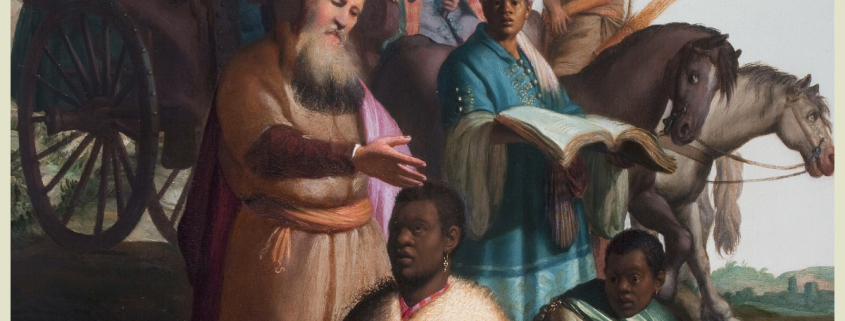
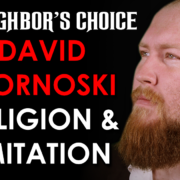
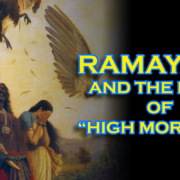
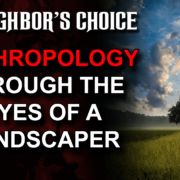


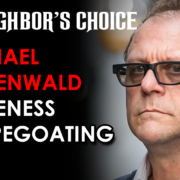




Leave a Reply
Want to join the discussion?Feel free to contribute!